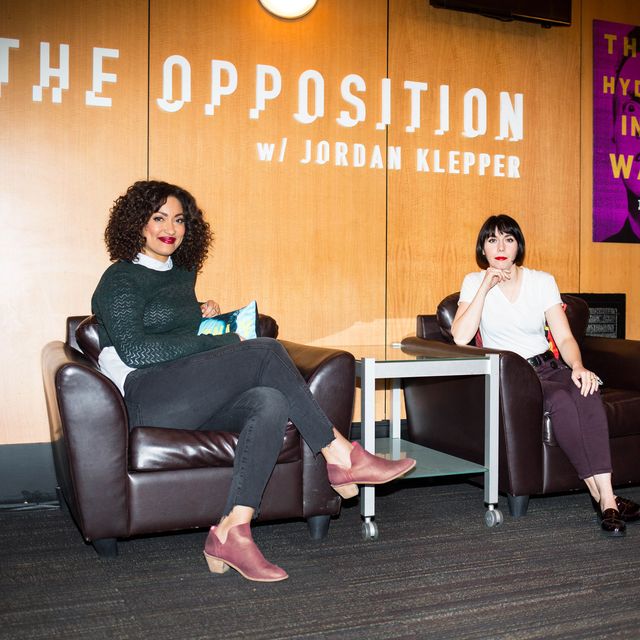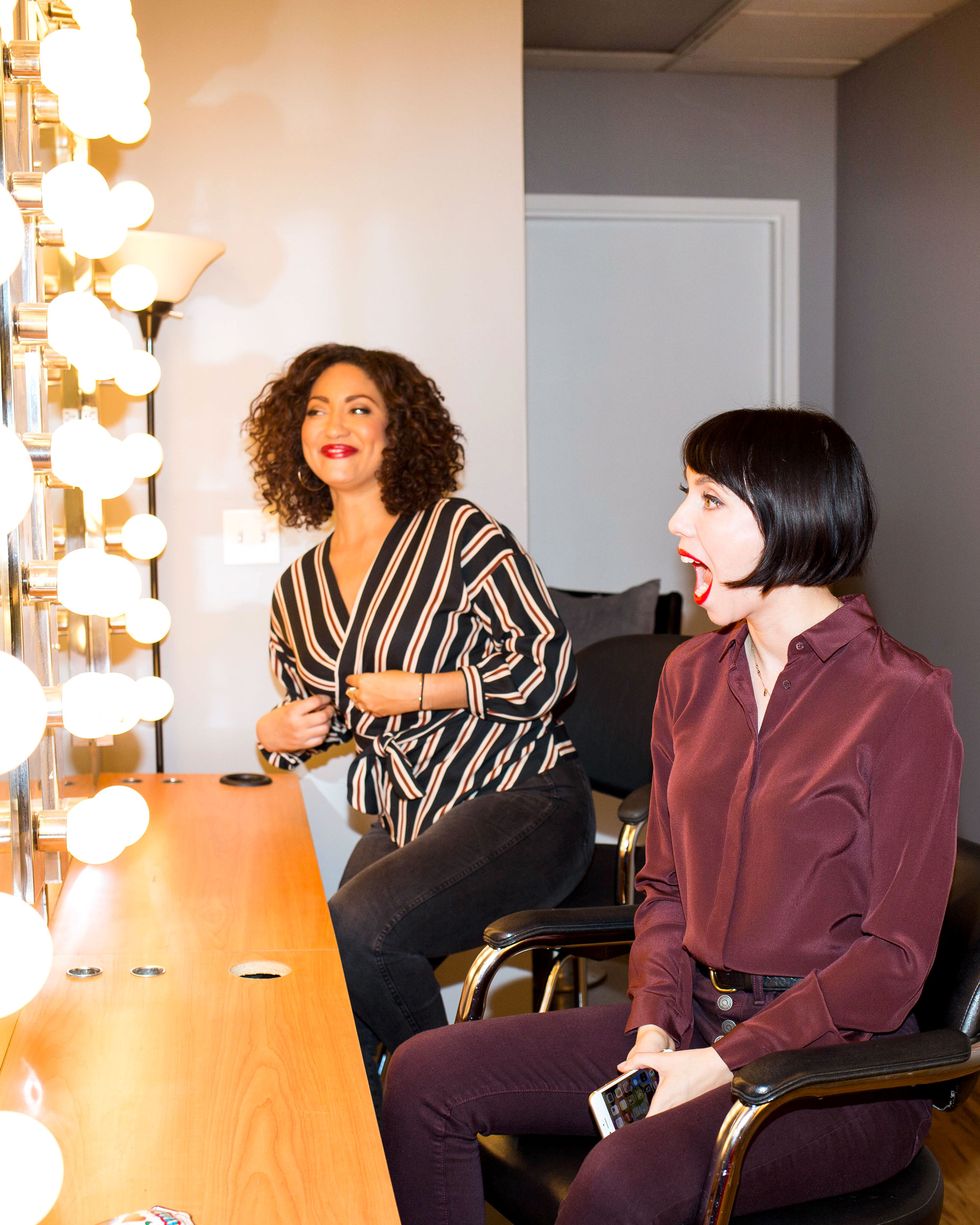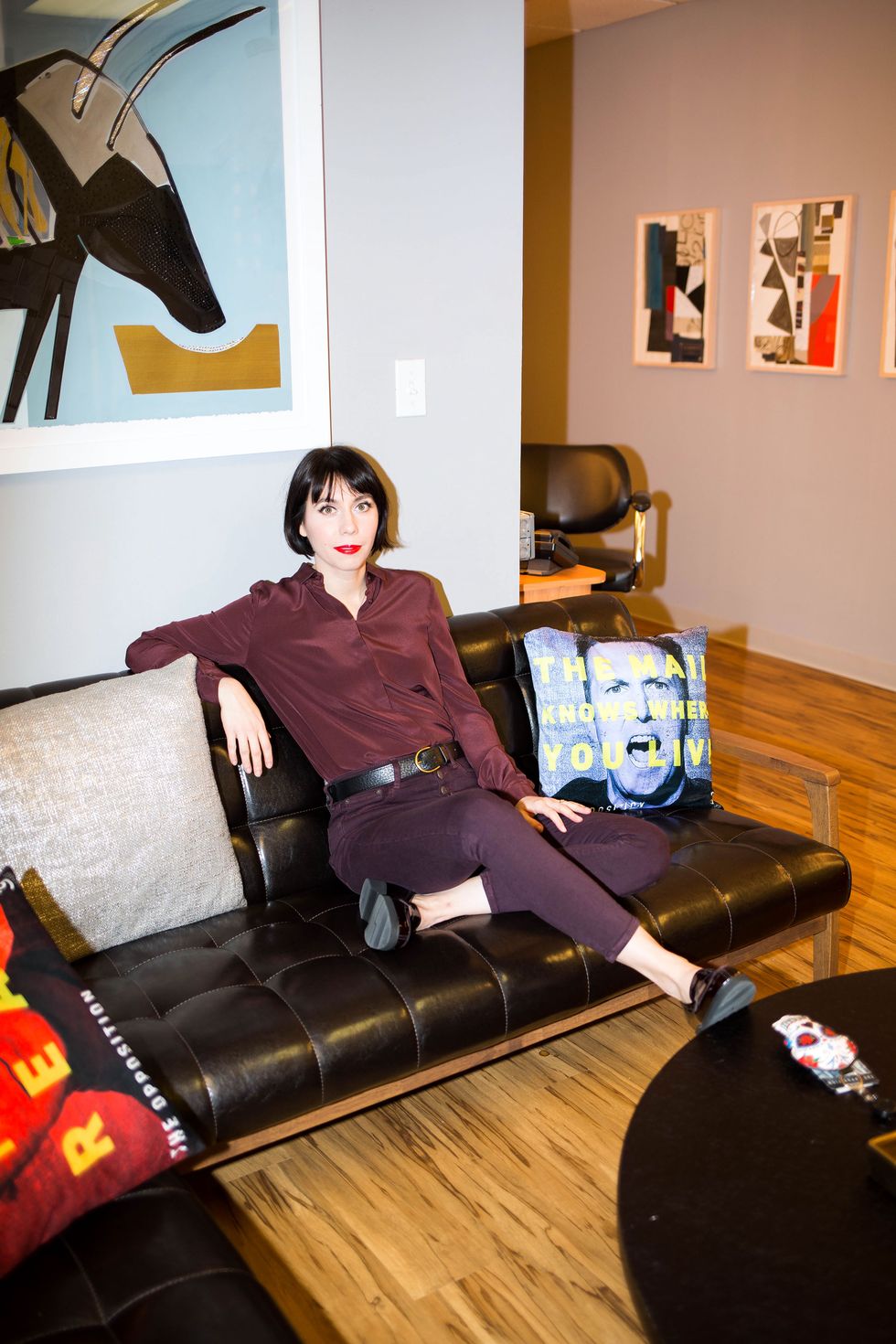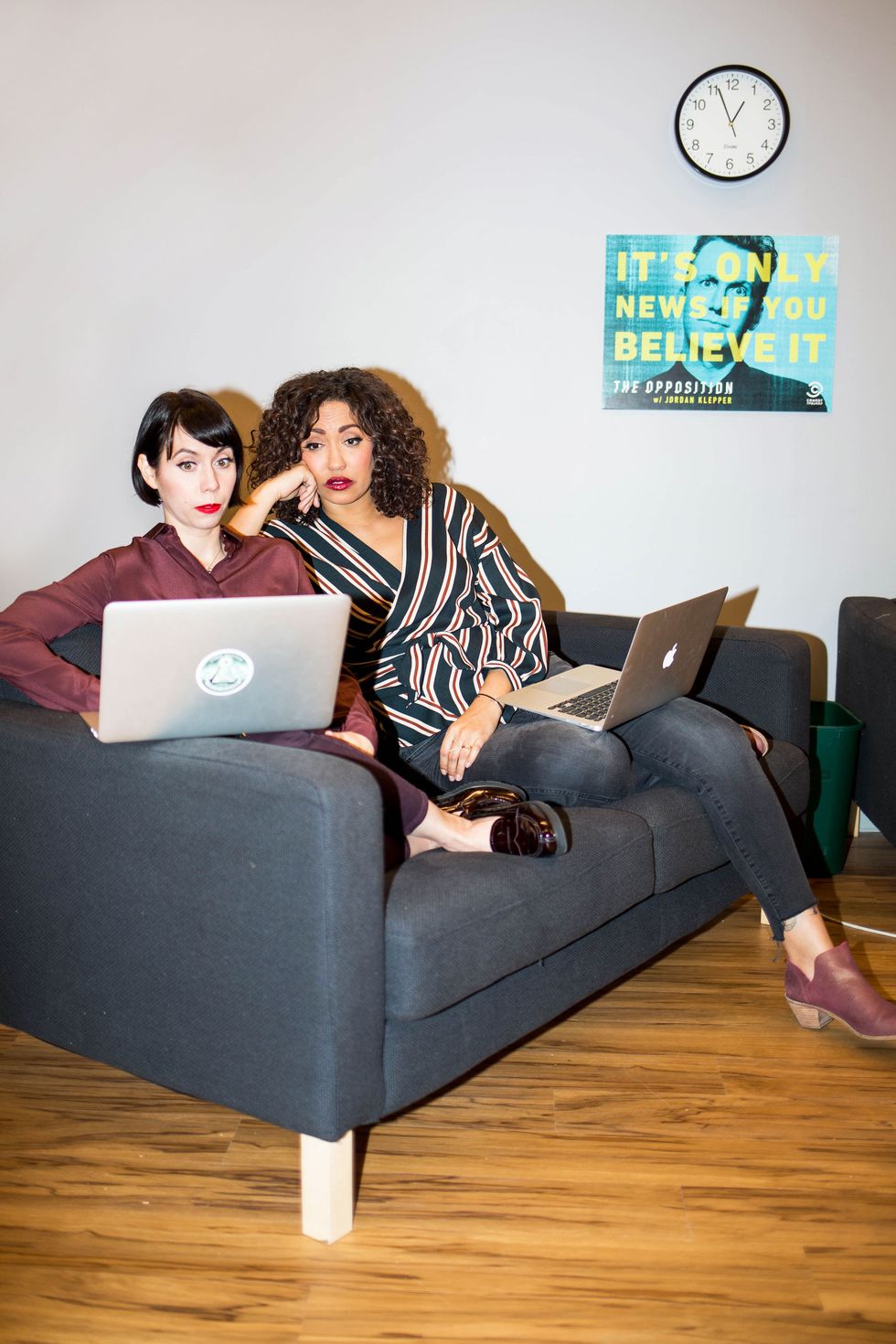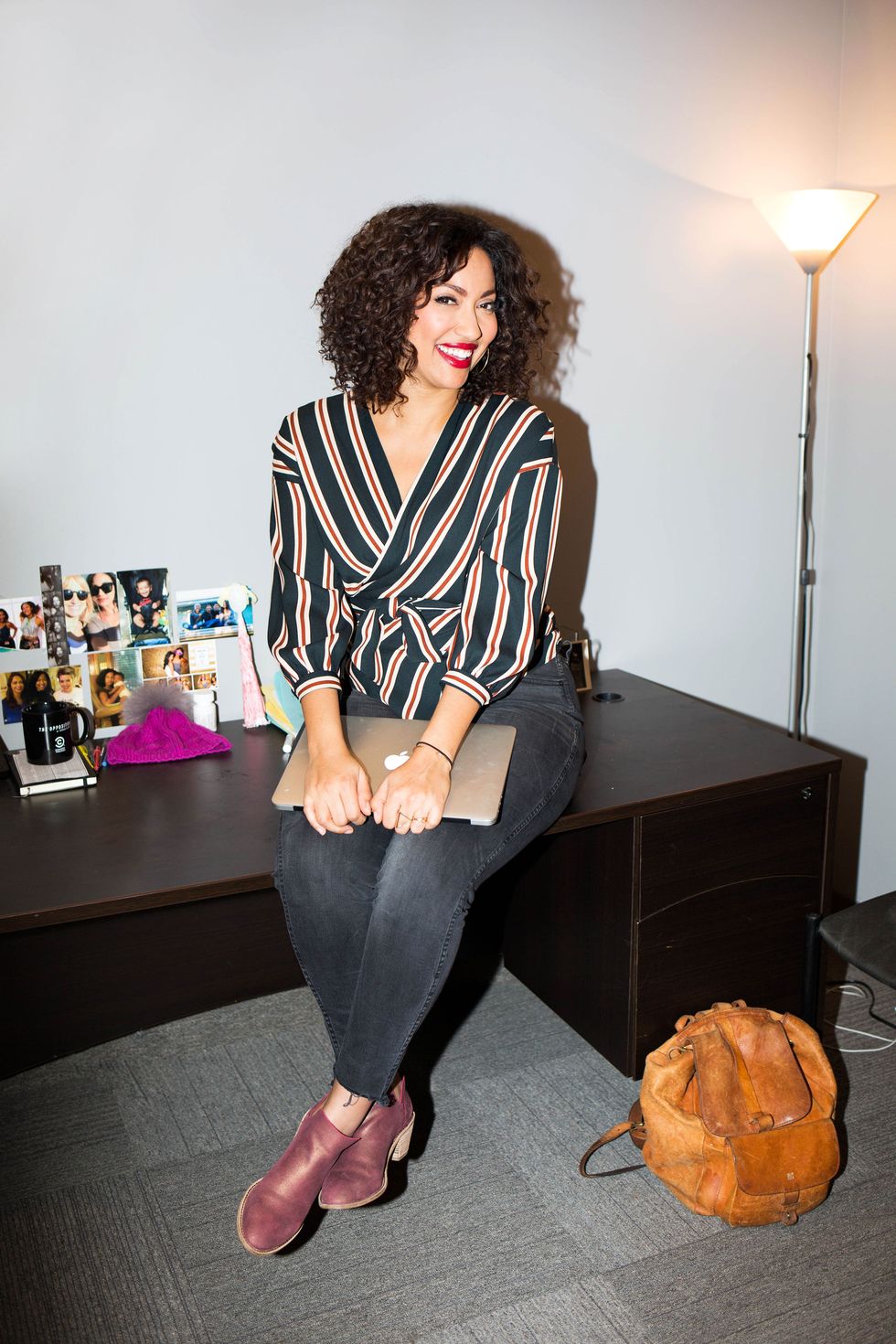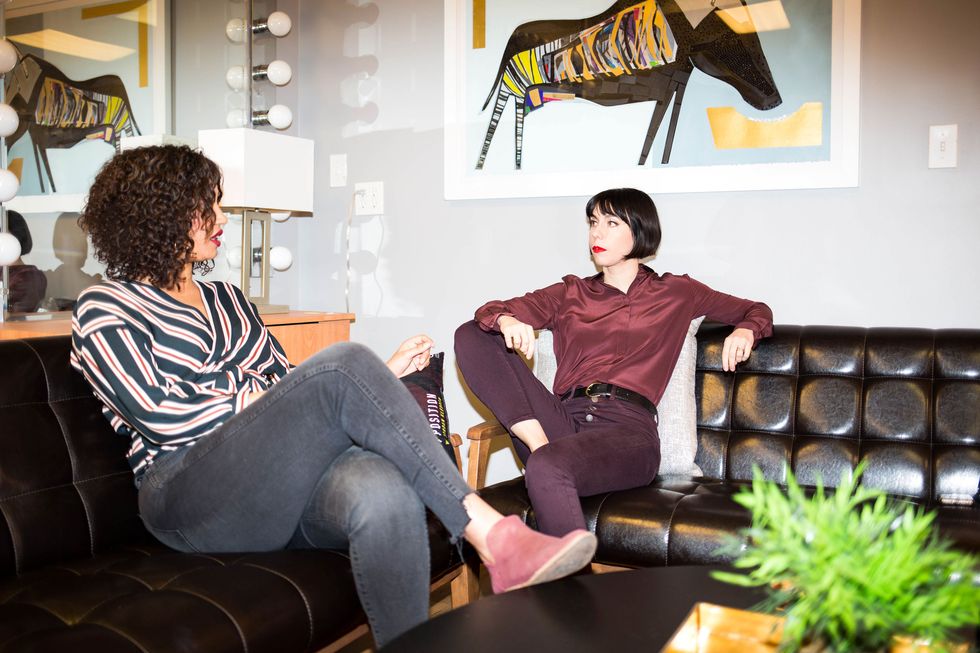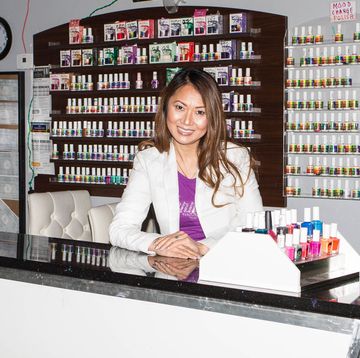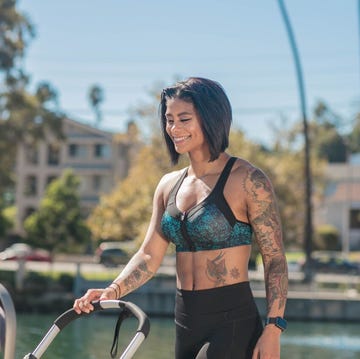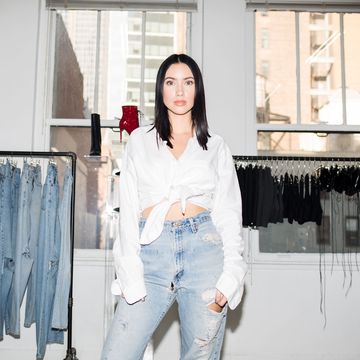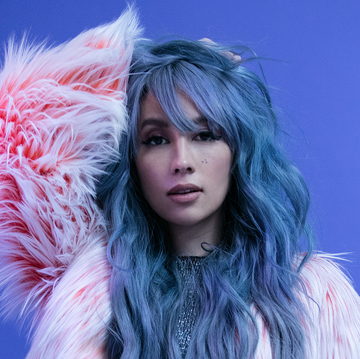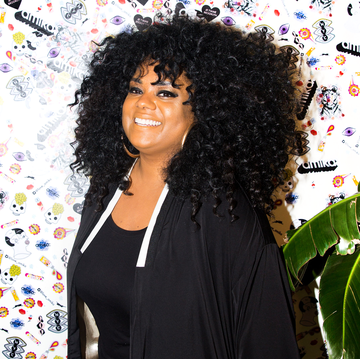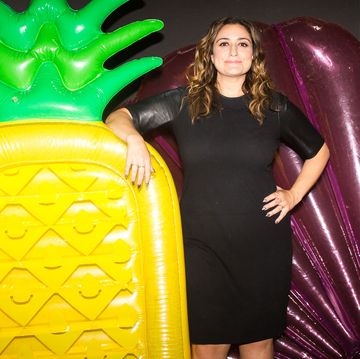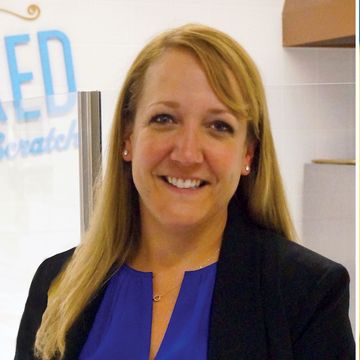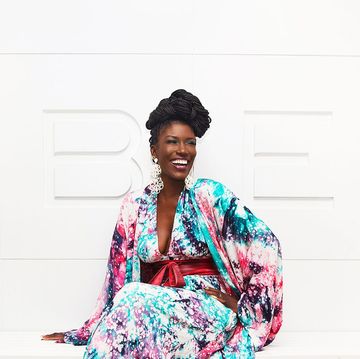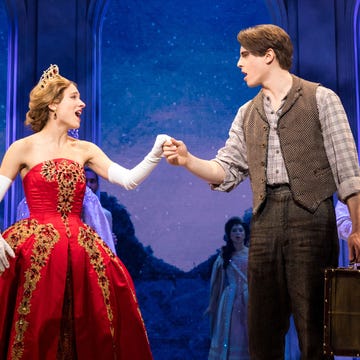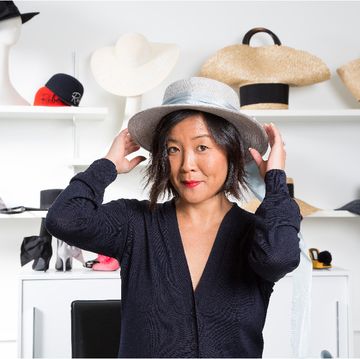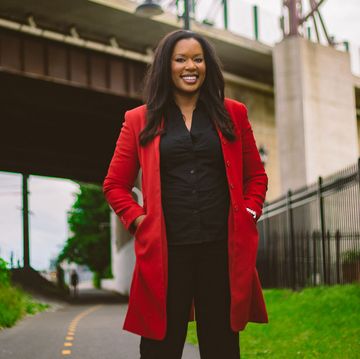Laura Grey and Niccole Thurman both got their starts at The Second City — an improv comedy theater in Chicago that's famous for turning out successful comics like Amy Sedaris, Amy Poehler and Tina Fey. From there, their career paths split in two different directions, but more than 10 years later, the women now work together as writers and correspondents on "The Opposition With Jordan Klepper" — a new late-night talk show on Comedy Central that satirizes alt-right news media. Grey and Thurman share how they landed their life-changing jobs, and what it's like to do political comedy during the Trump administration.
Niccole Thurman: I started taking drama classes in high school, which is really weird because I used to be really shy. But then I started taking these drama classes and I was like, I love this. It took me to a place where I could fully express myself and be myself even if I was being something else. My school also had an improv troupe that you could audition for when you were a senior, and so I was in that. That was my first taste of doing comedy. I remember I was getting ready to graduate, and I was like, I want to study theater in college but I don't think that's stable and I don't know if that's a good idea of a major. I was really upset and kind of tearing up with my theater teachers, and they both were just like, you have to do what you want to do, study theater, and don't be afraid to do it. So I studied theater at the University of Kansas, which is not like a hot theater degree but it was good.
I feel like I was so lucky — my mom is very supportive. Her fears come out in little spurts but it's never oppressive, if that makes sense. She always was like, yeah study theater, do whatever, that's so cool. And then every once in a while, she'd be like, but maybe, like, get a business minor.
Laura Grey: My mom was the same. I was a writing major and a theater major in college. But my mom was like, you're gonna get your PhD and be a college professor because she was a Chicago public school teacher and put herself through her master's program when she was in her sixties. So I think in her mind, she was always like, oh you're going to get one extra step of education than I got and do that. She would totally come out to all my shows and support me —but every six months I would get a mailing of grad school catalogs for PhD programs to be an English professor. And then when she realized that I was not changing what I was doing and would be working in the theater scene, it changed to entertainment law.
When I got to college I got really into doing improv. I would just take the train into the city and take classes, it was my hobby on the weekends. When you're little and have a lot of energy and want to perform, there's this idea of like, I need to be perfect. Improv is a great space. When I found it in college it was like, oh I can still express myself but I don't have to do it perfectly. I think honestly it was a form a therapy. I grew up in the Midwest and didn't have parents who were like, let's just take you to therapy for your anxiety! I had to find anxiety management through my hobbies. I was like, I'm gonna do the scariest thing, which is just get on stage and have someone give me a suggestion and then just try and do a scene. But it can't be perfect.
But by the time I graduated I was like, I just wanna move into the city and keep doing this for real.
Niccole: I was never comedy-focused until I moved to Chicago [after college] and I ended up interning at Second City, auditioning for them, and started working for them. I waited tables in every kind of restaurant you could ever work in until three months ago when I got this job. And I did commercials — I think I have that "ethnically ambiguous person" look that books commercials. I have been called a sellout before by one of my friends who's like not even in the acting world anymore. But I was like, I will sellout every day for a commercial. It's the way to pay your bills! I knew what I wanted to do, I stayed focused on what I wanted to do, I worked hard, and I didn't do things that didn't inspire me.
Laura: Besides a woefully poor stint as a brunch hostess, I supported myself as an arts educator for a really long time. I would teach creative writing and improv and comedy for high school students in an after school program that I ran and wrote the curriculum for. I was also the artistic director of a theater company called Barrel of Monkeys, which was an arts education program in Chicago.
My first commercial story is kind of sad and really indicative of the industry. It was in Chicago, it was for some pharmaceutical company. They didn't tell me it was for a yeast infection medication. I put on high heels and I had to walk on a treadmill, because it was one of those commercials where things pop up around your head. I was on high heels walking on a treadmill for a yeast infection commercial and it was a union job where they basically ended up paying me a $500 flat fee to run a yeast infection commercial nonstop on local cable. That experience early on made me think, if given the choice of all of these hours spent in an audition room, would I rather do that, or be able to support myself teaching and not making that much money?
Then when I came to New York, I decided to teach improv at the Upright Citizens Brigade.
Niccole: There have been a lot of times when it was really hard and I wanted to quit. Just six months ago, I broke up with my boyfriend and I was living in L.A. He had just moved out of my apartment and I was like, I'm not doing this, I'm done. I was 34, about to be 35, and I was like, I'm not gonna be 35, working on jobs here and there and hoping for a commercial, and being single in L.A. I was ready to have an adult, stable life. But after the break-up, I booked three jobs back to back, and then this job. The older you get, the longer it feels like it's taking, the more you just are like, I can't. Then stuff like this comes along, and this is life-changing for me.
Laura: I had a weird year a couple years ago where I was the closest I ever got to a couple of really big jobs, where it was down to me and someone else. I had been living paycheck to paycheck and loved teaching but knew it wasn't what I wanted to do forever. I screen tested for The Daily Show against Jordan [Klepper] three years ago, and it was the hardest experience of my life. It was like, one of the jobs where my life was almost going to change, and then it didn't. To compete against your husband for a job and then realize — in a good way — oh my god, his dream has come true, I'm so happy for him. That was a moment that I was like, wow this is the third time this has happened this year, and you try so hard to not think, "It's me."
I moved straight into writing after that, and took a step back from performing. I feel so blessed to get to do this job now because I get to perform again.
Niccole: I always call it a marathon. That's what this career feels like. You're running a marathon, and you're looking to the side and you see people start falling off, and you're like, I'm really tired and I don't want to do this anymore, but might as well keep going. I'm here because I never stopped running and I'm still not done running. It pays off but it's hard.
Laura: I aspire to become the first average looking woman over 40 that's still allowed to be on TV.
Niccole: When I applied for this job on The Opposition, I submitted a tape, wrote a five-minute piece where it was a chat with me and Jordan [Klepper, the host of The Opposition], and then I performed a piece that the producers wrote for me. You tape those back to back, and send it to your agent, who then sends it on to the producers. Then if they like that, they'll call you and have you make another tape. Then if they like that, they call you and say they want to fly you to New York to test. So I flew to New York, went into a room where it was the producers and Jordan, and I read with Jordan in the room. It was so fun — I had never met Jordan but I felt immediately comfortable with everybody. I went back home to L.A., waited through the weekend, and then they called me and said that I got the job and I had to be living in New York four days later. That was the first time I'd ever gotten the call back to come and test, and I got the job.
Laura: I was already living in New York and had been the head writer for Jordan's special, "Jordan Klepper Solves Guns." I mean, Jordan's my husband. I don't know if that's weird to say.
Jordan and I were writing partners and collaborators in Chicago for years, even before we were dating. We met when we were touring together for the Second City, then we both quit touring and starting dating, and wrote a couple of shows together in Chicago. We both decided to move to New York together and started teaching at the Upright Citizen's Brigade. We put up shows together and were producing our own short films, then we produced a web series. We had been working together consistently up until we auditioned as a duo for The Daily Show because they'd seen our web series. He got the job and that was great, but then there was a period of time where he was working there and I was working on different projects with different collaborators. When "Jordan Klepper Solves Guns" came up, I started writing for Jordan again.
Now that I'm talking about it, it makes me feel anxious. As a woman, there's a fear that when people see that I'm his wife, they'll be like, oh so that's how she got the job? But it was years and years of creative collaboration.
Niccole: Being Jordan's wife doesn't make you any less of a writer, comedian, performer. It doesn't mean you didn't work to get this job.
I haven't dealt with a lot of harassment — I guess I'm lucky. But for me, what's the toughest is always having to answer the questions, are women funny? or, what is it like to be a woman comedian? And you're like, I don't know, what's it like to be a man in comedy? What's it like to be a person in the world? It's always having to distinguish yourself or prove yourself. And I think there is a lot of that with the way audiences may treat you because you're a woman.
Laura: I feel similarly — I haven't personally experienced harassment, but I definitely have worked with women who have experienced it. The scariest thing is that women who felt like they were speaking out about harassment is that they felt like it would harm their career. I worked a lot in all-female groups because I felt like there was power in numbers, power in women working together.
The subject matter of this show is tough because we're looking at conspiracy theories, the alt-right and the manosphere. But I think our saving grace is that we have really good female representation in the writer's room. In order to have this conversation, you have to have more equity in terms of who is allowed to talk about it, at the same time, in the same room. With the tricky subject matter, where we're watching clips day after day of Fox News, reading Breitbart headlines, watching Infowars — I think it's important to have more than one or two women weighing in. We're not here to be the offensive police. We're here to do comedy. The more women you have in the room, the more you get an empathetic response because everyone is bringing their own humanity to it, and it's not just one token woman being like, OK here's why that's wrong.
Niccole: I used to not be as politically invested as I have been in the past year since the election, and Trump winning, and our country imploding. I didn't pay attention as much as I should have. I would never watch Fox News, watch Infowars, read Breitbart — none of that. I would stay in my echo-chamber and in my bubble where I'm comfortable.
But I think it's really important to understand that there is a huge part of this country that is getting their information from these sources. And we can show that to our liberal fanbase — I'm assuming that our fanbase is mostly liberal — and we can do it in a humorous way, which is super fun. We can say, "This is real, this is happening." We have to understand that there are people who are hearing these things and buying into them. I think we should feel empathy for most people, I really do.
Laura: What we should be satirizing is the fact that we've gotten to this point where basically people can choose their own reality and their own fact. That's what we're living in now. But to not have empathy for someone who doesn't agree with you, that's not helpful. It's equally dangerous, because that has perhaps contributed to us landing in this place.
I think of my character [on The Opposition] as a real fire-brand. Someone like Dana Loesch is interesting to me, she's the spokeswoman for the NRA and is almost militantly pro-gun. There's this social movement of women who've denounced feminism and feel like they want to stand for traditional values, but at the same time they're benefitting from the feminism that has allowed them to be so strident and be heard. My character is modeled after women who believe, I have an opinion and it's right and I'm gonna say it the loudest!
Niccole: People always want to be like, how the fuck can you have a black Republican woman? That's crazy. So for me, it's like, what does this character want, why would she believe in these things? Because black women did not vote for Trump, by and large. I watched a lot of videos by this woman who goes by "Red Pill Black" — Candace Owens — and I was like, this woman makes excellent points and I don't agree with anything. But I understand why she thinks the way she does. She's connecting dots and making sense and she's elegant and classy and Republican. I come at my character from a place of selfishness — like, Trump likes money, I like money; Trump is a businessman, I'm a hustler. My character's also like, self-care at any cost!
Laura: I did a piece earlier this year on witches who were doing a binding spell against Trump. Getting to go out into the woods and witness this spell against Trump was really a delightful form of political activism. But it's not even always about Trump. I went down to Oklahoma and talked to a teacher there who was literally panhandling for school supplies. Oklahoma has really low education budget and big oil is there, and to sort of fill the gap in the money that is being given to public education, oil companies have stepped in, sometimes to help, but sometimes they have ended up pushing some pro-oil propaganda in the classroom. They have this book called "Petro Pete and His Very Bad Day." It's a children's book that's basically showing third graders what a nightmare it would be to grow up in a world without petroleum products to indoctrinate them to this idea of like yeah fossil fuels yeah big oil!
I feel like we're in a period right now where being an American is all about choosing what you get to believe, no matter what people say, your belief is more important. Those pieces are really interesting because you can get in-depth into an issue that isn't the Trump headline in the news. You can talk to people on the ground and see what they have to say, see what they think, see what they're feeling.
Niccole: Political comedy is hard — it's so intense. I was actually shooting something last week where I had to go out into the field and it was not my thing because I had to play an asshole. I was having really bad anxiety but then as soon as the camera would come on, it was like I was on stage so you're not thinking about all the external bullshit. You're not tied up in all of that.
I still have imposter syndrome, but after years and years of struggling and feeling like I was doing OK but never at the place I wanted to be, and getting older and having put aside personal life for work, it's such a dream to be able to finally be able to get recognition. Especially in comedy.
Get That Life is a biweekly series that reveals how successful, talented, creative women got to where they are now. This interview has been edited and condensed for clarity.
Follow Hannah on Twitter.
